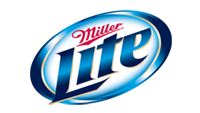Is 23andMe Doomed? Nope. Here's Why.
The emergence of cheap genome sequencing and commercialized testing (23andMe) has pushed many important legal and ethical questions to the forefront. Should parents be allowed to check for serious genomic defects in their children? Should physicians tell children and their parents about genomic test results for a disease that the child would not get until adulthood (e.g. BRCA1, Huntington's)? What about family members (parents and siblings) who do not want to know results? What about the woman who does not tell her sister about a positive BRCA1 test? Is she liable if the sister gets breast cancer? What is someone finds out that their father is not really their father? The fast rise of 23andMe and the FDA's halt to their testing demonstrate the difficult debate ahead. This talk will set up several real-life scenarios and their potential legal and ethical considerations. Facing these issues now will help pave the way for the coming future of personalized medicine and the connected self.
Presenters

Samuel Volchenboum
Dir, Center for Research Informatics
University of Chicago
Sam has received his MD and PhD in molecular biology at the Mayo Clinic followed by pediatric residency training at Cincinnati Children's. He completed fellowships in pediatric hematology/oncology at the Dana-Farber Cancer Institute and in biomedical informatics at Children's Hospital Boston while earning a Master's degree at the Massachusetts Institute of Technology. At the University of Chicago since 2007, he has focused his efforts on the application of clinical informatics, proteomics, and systems biology to the study of cancer. As Director of the Center for Research Informatics, he leads groups responsible for bioinformatics analysis, clinical applications development, and data warehouse design and implementation. His own research group focuses on the development of algorithms for high-throughput data analysis for mass spectrometry data, and his laboratory is working on cell line-based proteomics methods for studying pediatric solid tumors.
















